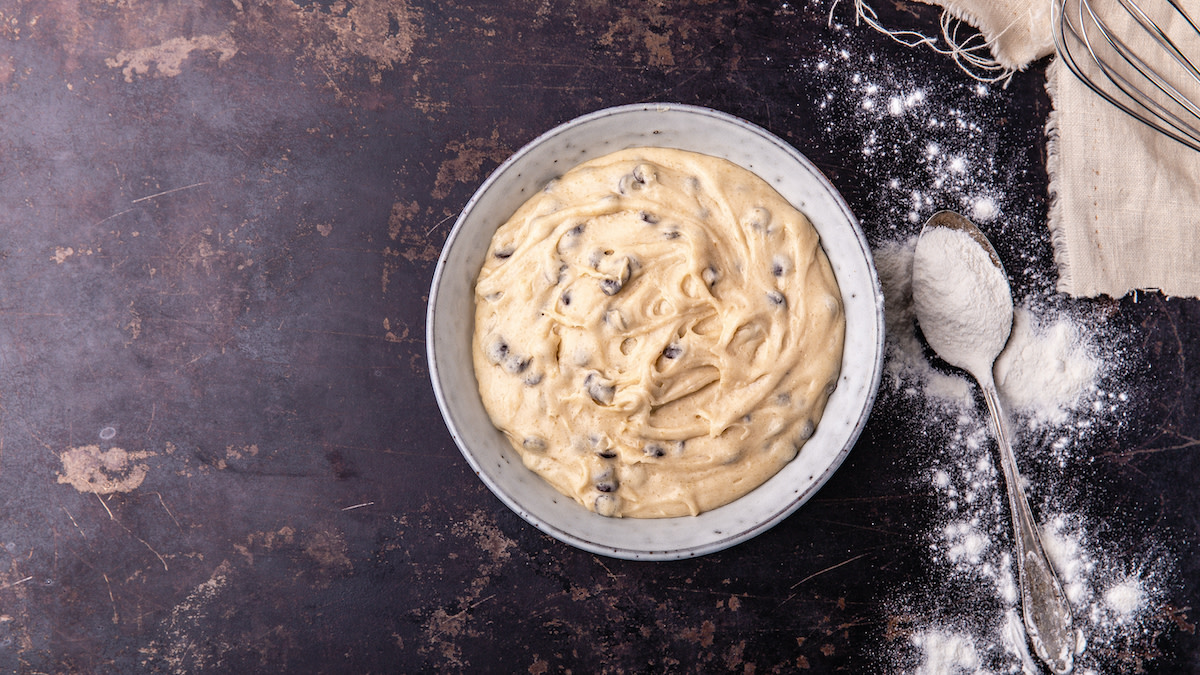How to Store Cookie Dough: 4 Easy Methods to Try
Written by MasterClass
Last updated: Dec 16, 2021 • 3 min read
Learn how to store cookie dough, so you can build a stockpile of chewy, crumbly, crunchy, delicious cookies for whenever you need them.
Learn From the Best
How Long Does Cookie Dough Last?
While store-bought cookie dough contains preservatives that may extend its shelf life somewhat, homemade cookie dough will only last in the refrigerator for about three days stored in an airtight container. (If your store-bought cookie dough doesn’t have an expiration date, add a week or so to the “best by” date.)
Freezing cookie dough helps it last much longer—anywhere from six months to one year.
Can Cookie Dough Go Bad?
Like any recipe that contains raw eggs, raw cookie dough presents a food safety risk. If left too long at room temperature or improperly stored, the dough can develop both salmonella and E. coli, which can lead to food poisoning and other adverse effects on your health. Properly baked cookies carry less risk of these diseases than raw dough. You’ll know a batch of cookie dough is past its prime if it’s moldy, smells funky, or has hard, discolored edges.
4 Ways to Store Cookie Dough
The average cookie recipe yields a few dozen servings—far more than most people want or need at any given moment. The best option? Bake off only a small handful, and save the rest of the cookie dough for another time. Depending on the type of cookie dough, there are a few different techniques to consider.
- 1. Storing cookie dough in the refrigerator: To store cookie dough in the refrigerator, cover the mixing bowl with a tightly sealed sheet of plastic wrap or transfer the dough to an airtight container. For the best quality, use the dough within three days.
- 2. Storing cookie dough balls: To freeze chunky cookie dough, like the kind you'd use for chocolate chunk cookies, oatmeal raisin cookies, cinnamon-dusted snickerdoodles, or any variety of drop cookies, use a cookie scoop (or one-tablespoon scoop) to shape the dough into balls, then place the balls in a resealable freezer bag and freeze. Alternatively, you can freeze cookie dough into your preferred batch sizes, whether a half or full dozen. Place the balls of dough in a single layer on sheets of parchment paper, then wrap and seal them in an airtight container or zip-top freezer bag.
- 3. Storing cookie dough logs: For more delicate cookies, like shortbread cookies, shape the dough into logs, then wrap each log in plastic wrap. When the time comes to bake, allow the dough to soften slightly in the refrigerator, which will make it easier to slice the dough into thin cookies. Learn how to make shortbread cookies.
- 4. Storing cut-out cookie dough: For cut-out cookies, like holiday sugar cookies, roll out the dough and lay the dough sheets into cake pans or, if you have room, a baking sheet. Cover the dough sheets with parchment paper or wax paper, then stack another on top and store in a freezer bag. Let the frozen dough thaw slightly in the refrigerator before cutting out shapes with a cookie cutter. You can also form the dough into a rough disc, as you would pie crust. Let the frozen disc thaw in the refrigerator until just soft enough to roll. Learn how to make holiday sugar cookies.
Should You Defrost Frozen Cookie Dough Before Baking?
There’s no need to defrost frozen cookie dough to room temperature before baking. In fact, many professional bakers prefer to bake chilled cookie dough, which helps the cookies hold their shape. Remember that your cookies may require a few extra minutes of baking time if baking directly from frozen.
Want to Learn More About Baking?
Become a better baker with the MasterClass Annual Membership. Gain access to exclusive video lessons taught by the world’s best, including Joanne Chang, Dominique Ansel, Gordon Ramsay, Chef Thomas Keller, Mashama Bailey, and more.
